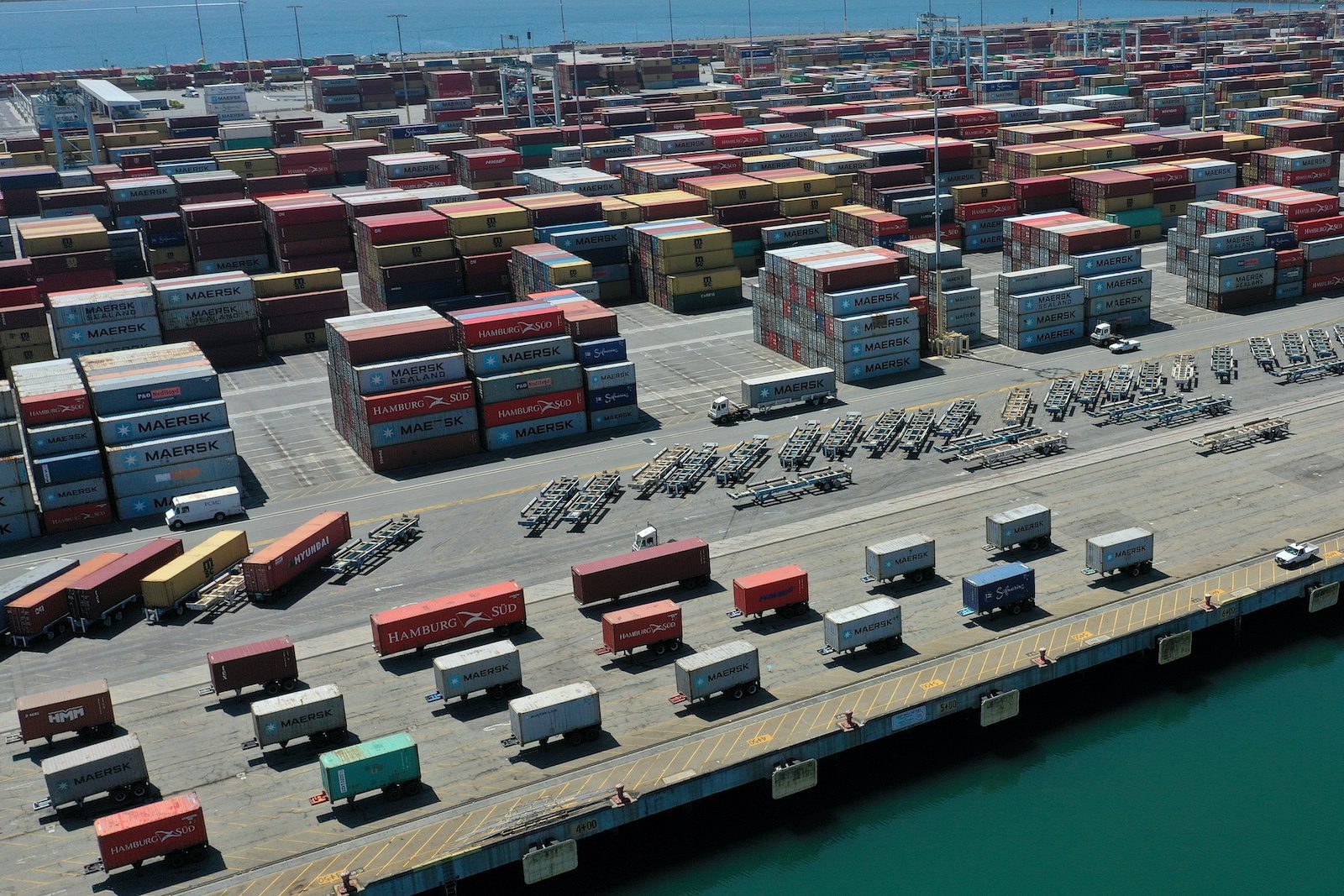Port of Los Angeles Volumes Fall 12% as Tariff Uncertainty Clouds Outlook
Los Angeles processed 812,000 TEUs in January, down 12% year over year, with exports hitting their lowest monthly level in nearly three years as tariff uncertainty lingers.


By Lisa Baertlein
LOS ANGELES, Dec 15 (Reuters) – Workers at the busiest U.S. seaport are plucking containers of toys off ships and out of massive stacks of cargo swamping docks at the Southern California trade gateway to get holiday gifts under trees in time for Christmas.
“We’ve never had this much cargo,” Gene Seroka, executive director of the Port of Los Angeles, said on Tuesday, when the port announced that imports spiked 25% during the month of November.
With so much cargo flooding in ahead of Christmas, “we’re essentially in a triage situation,” said Seroka, who worked with a handful of toy makers to expedite toy shipments.
Imports to the Port of Los Angeles have been booming for more than five months as U.S. businesses rebuild depleted inventories of everything from appliances to bicycles; stockpile personal protective equipment and other sought-after goods in a worsening pandemic; and prepare for the winter holiday selling season.
The surge in volume has created congestion that makes it harder for trucks and trains to quickly whisk containers away from the busiest gateway by volume for U.S. trade with China. That then slows down inbound ships.
In November, 50 of the 88 vessels coming to the Port of Los Angeles waited on anchor for 2.5 days before being unloaded. So far in December, about 80% of arriving vessels are anchored for an average of four days, Seroka said.
Importers told Reuters the log jams are holding up their cargo for up to a month.
The Christmas season is the lifeblood of the toy industry, and the disruption is hitting that sector particularly hard.
“It’s the height of the season,” said Isaac Larian, chief executive of California-based MGA Entertainment.
“As of yesterday, we had 250 containers sitting at the port,” he said. Those boxes, containing LOL Surprise! and other MGA toys, had been delayed three to four weeks.
Seroka and others at the port have helped get a few containers out every day, Larian said. (Reporting by Lisa Baertlein in Los Angeles; Editing by Christopher Cushing)
(c) Copyright Thomson Reuters 2020.
Subscribe to gCaptain Daily and stay informed with the latest global maritime and offshore news
Essential news coupled with the finest maritime content sourced from across the globe.
Sign Up